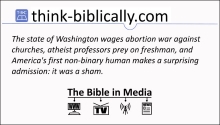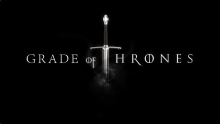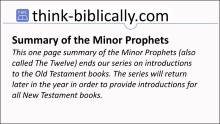
"Media" used to mean "print media" like books and newspapers, but the world has grown. Today media can also mean radio, television and movies delivered to personal computers, tablets and cell phones. As the world's best selling book of all time the Bible continues to make headlines, both good and bad, across all forms of media: The international assault on Christianity continues, with China closing churches, the UK prosecuting a reporter for her Catholic views and claiming Christianity is a religion of violence, and the European Union cracking down on people who insult Muhammad. There is good news for Israel, though.

"Media" used to mean "print media" like books and newspapers, but the world has grown. Today media can also mean radio, television and movies delivered to personal computers, tablets and cell phones. As the world's best selling book of all time the Bible continues to make headlines, both good and bad, across all forms of media: The shooting in Christchurch reminds Christians that everyone is a neighbor, Youtube's advertising department slams the door on Biblical values, a high school wrestler receives scholarships for sticking to Christian conduct, and China's anti-Christian rhetoric heats up calling it a "threat to society."

"Media" used to mean "print media" like books and newspapers, but the world has grown. Today media can also mean radio, television and movies delivered to personal computers, tablets and cell phones. As the world's best selling book of all time the Bible continues to make headlines, both good and bad, across all forms of media: The state of Washington wages abortion war against churches with the help of Planned Parenthood and NARAL, university professors prey on freshman to turn them into atheists, and America's first non-binary human makes a surprising admission: it was a sham.

The first chapter of the book of Joel describes a locust plague that devastated the land. The land was so ravaged that the people had no food to eat and nothing to sacrifice for their sins. In the midst of such devastation Joel gives a prophecy about a future destruction from a foreign military that will act as God's arm of discipline against Israel. The reason for both the actual plague and the coming judgment are the same: the people had forgotten God. With nothing left and a future filled with dread God provides hope (2.12). The Lord is not interested in sacrifices, he desires their hearts.

"This [inheritance] brings you great joy, although you may have to suffer for a short time in various trials. Such trials show the proven character of your faith,which is much more valuable than gold – gold that is tested by fire, even though it is passing away – and will bring praise and glory and honor when Jesus Christ is revealed." — 1 Peter 1.6-7. In my regular reading of Scripture I came across the gem above, and it caused me to do a little more research and inspired me to write this follow-up to one of our most-read posts, Why Suffering?

The best athletes know a very deep truth. They practice regularly, of course, but sometimes they practice the plays in slow motion. Martial artists are famous for the slow, precise repetition of the mechanics. It develops muscle memory. Football players watch reels of their plays, examining the details in slow motion. Sometimes it is only in the frame-by-frame that one can detect the cause of a successful or derailed play. The truth these athletes know is that, sometimes, slowing down or being still is the key to success. Should we wonder, then, why God tells us to be still?

Comedian Dennis Miller once said, "It's silly to hate anyone based on their religion or the color of their skin when, if you took the time to really get to know them, you could find so many better reasons to hate them." The point is, people are complicated. Nowhere in Scripture is this more evident than in the relationship between Kings David and Solomon with Elohim. They are considered Israel's greatest kings, but were they really? How do they measure up against God's guide for kings? That guide is given to everyone in Deuteronomy, so we can judge for ourselves.

This one page summary of the Minor Prophets (also called The Twelve) ends our series on introductions to the Old Testament books. We sincerely hope this has been fruitful for all our readers and helped them improve their knowledge of the Bible and provided a resource everyone can return to when studying a particular book of the Bible. We will be updating these pages as new information becomes available so be sure to check back for the very latest content. The series will return later in the year in order to provide introductions for all New Testament books.

We've published a number of articles over the last five and a half years to teach Christians about the historical, scientific, and philosophical reasons their faith is in a God that is real. With posts on the reliability of the Bible, understanding the Trinity, archaeological evidence, readers can be encouraged that their beliefs are based on real people and events. Even so, the number of Christians well versed in apologetics are falling. While we recognize the importance of apologetics and promise it will continue to be a focus of our writings, we've identified another problem in most Christian communities.

Jesus opened his sermon with the words, “Blessed are the poor in spirit, for the kingdom of heaven belongs to them." I can't help think that maybe he was speaking about Kyung-ja, a woman whose family was so poor she risked sneaking from North Korea into China to earn a little money for food. After a full days work — and pay — she worked her way surreptitiously back across the boarder. That's when it happened. Crossing the border between two godless countries she was arrested and taken to a North Korean prison. It would be here she would first meet God.

"Media" used to mean "print media" like books and newspapers, but the world has grown. Today media can also mean radio, television and movies delivered to personal computers, tablets and cell phones. As the world's best selling book of all time the Bible continues to make headlines, both good and bad, across all forms of media. Jack Phillips wins again, a church in West Virginia burns to the ground but the Bibles and crosses within survive without damage, and in a personal note it's been a week of locusts, locusts and more locusts and a surprising — if not alarming — discovery.

Years ago I went to a lecture presented by Dr. Larry Crabb. I had read his two important works, Inside Out and Men & Women, as well as Shattered Dreams. I took my best friend (who had not read anything by Crabb but knew him through reputation) and we anxiously awaited to hear what the author had discovered. After he came out on stage and gave a few introductory remarks he asked the audience a simple question: “What is the center of Christianity? If there were a bulls eye in the Christian faith, what would it be?” The crowd offered up several answers and my friend even shouted up at the stage: “Jesus!” Larry looked over at us and, shockingly, said, “No, it’s not Jesus.”

